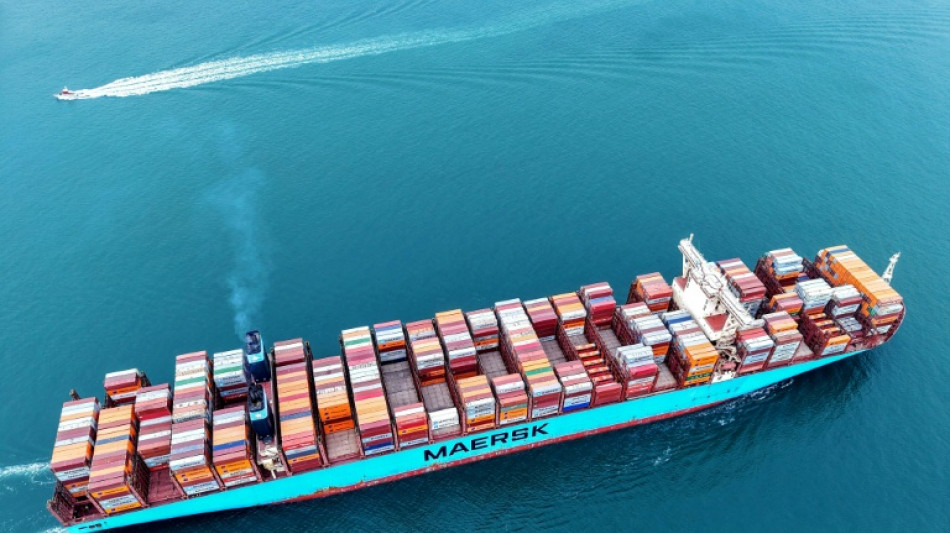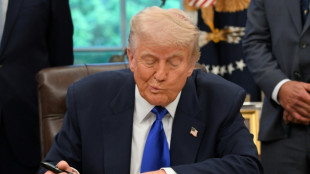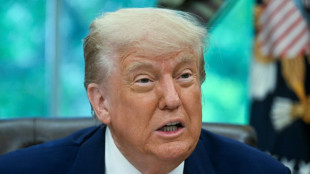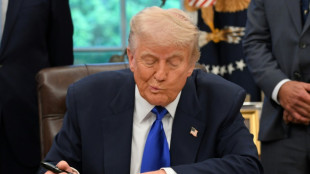

China exports beat forecasts ahead of US tariff talks
Chinese exports rose last month despite the trade war raging with the United States, official data showed Friday ahead of talks between the world's top two economies towards easing the standoff.
Experts said that the forecast-smashing 8.1-percent rise indicated that Beijing was re-routing trade to Southeast Asia to mitigate US tariffs of up to 145 percent on Chinese imports imposed by President Donald Trump.
Trade between the world's two largest economies has slumped since Trump imposed the tariffs -- some cumulative duties are 245 percent -- and China responded with levies of 125 percent and other measures.
The year-on-year increase in exports of 8.1 percent in April was much higher than the 2.0 percent forecast by analysts polled by Bloomberg last month.
The data from the Chinese customs bureau showed exports to Thailand, Indonesia and Vietnam surged by double digits, in what one analyst called a "structural repositioning" of trade.
"The global supply chain is being rerouted in real time," Stephen Innes of SPI Asset Management wrote in a note.
"Vietnam looks set to become China's offshore escape hatch for US-facing goods," he said.
"The manufacturing juggernaut is diverting flow wherever the tariff pain isn't."
Month-on-month exports to the United States plunged 17.6 percent.
Global markets have been on a rollercoaster since Trump began his tariff offensive aimed according to the White House at bringing back manufacturing to the United States.
While Trump has suspended for 90 days many of the most painful levies, those on China have remained in place.
But markets have been lifted by optimism over meetings set to take place in Geneva over the weekend between US and Chinese officials -- the first talks between the superpowers since Trump's trade offensive began.
Washington has said it hopes the sitdown will allow for a "de-escalation" of tensions, while Beijing has vowed it will stand its ground and defend its interests.
- 'Persisting uncertainties' -
Zhiwei Zhang, president and chief economist at Pinpoint Asset Management, also attributed the forecast-beating exports to "transshipment through other countries."
But he also cited potential "trade contracts that were signed before the tariffs were announced."
"I expect trade data will weaken in the next few months."
Imports were also being closely watched as a key gauge of consumer demand in China, which has remained sluggish.
They also beat expectations, dropping 0.2 percent, compared with the 6.0-percent slide analysts had estimated.
Chinese policymakers this week eased key monetary policy tools in a bid to ramp up domestic activity.
Those included cuts to a key interest rate and moves to lower the amount banks must hold in reserve in a bid to boost lending.
A persistent crisis in the Chinese property sector -- once a key driver of growth -- also remains a drag on the economy.
In an effort to help the sector, Pan also said the bank would cut the rate for first-time home purchases with loan terms over five years to 2.6 percent, from 2.85 percent.
The moves represent some of China's most sweeping steps to boost the economy since September.
But analysts pointed to a continued lack of actual stimulus funds needed to get the economy back on track -- a task further complicated by trade headwinds with Washington.
"Even if the tariffs may be trimmed depending on the outcome of US-China trade talks, the persisting uncertainties will continue to accelerate decoupling structurally," Gary Ng, senior economist for Asia Pacific at Natixis, told AFP.
A.MacCodrum--NG



